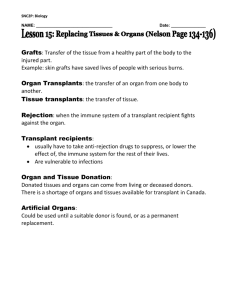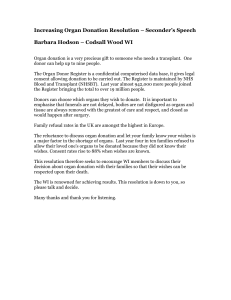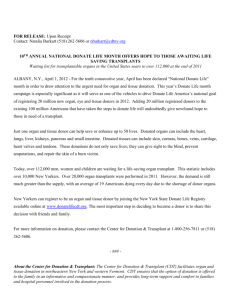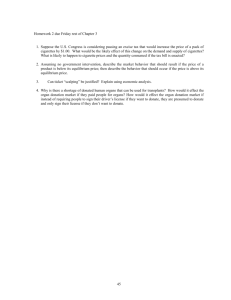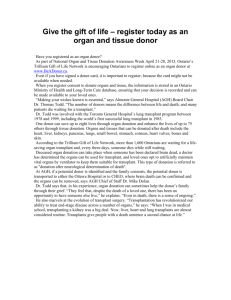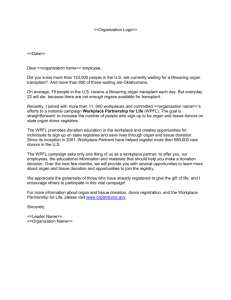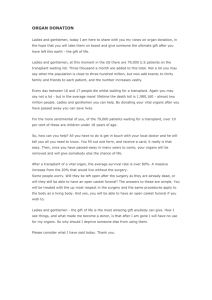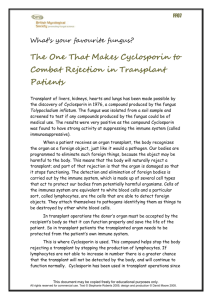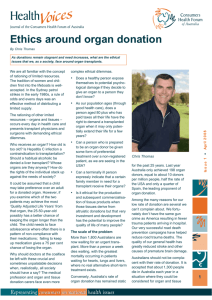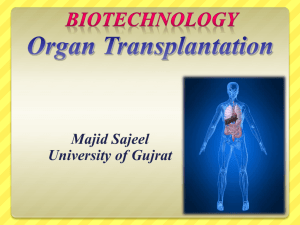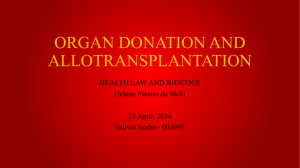bitofme - Spolem.co.uk
advertisement
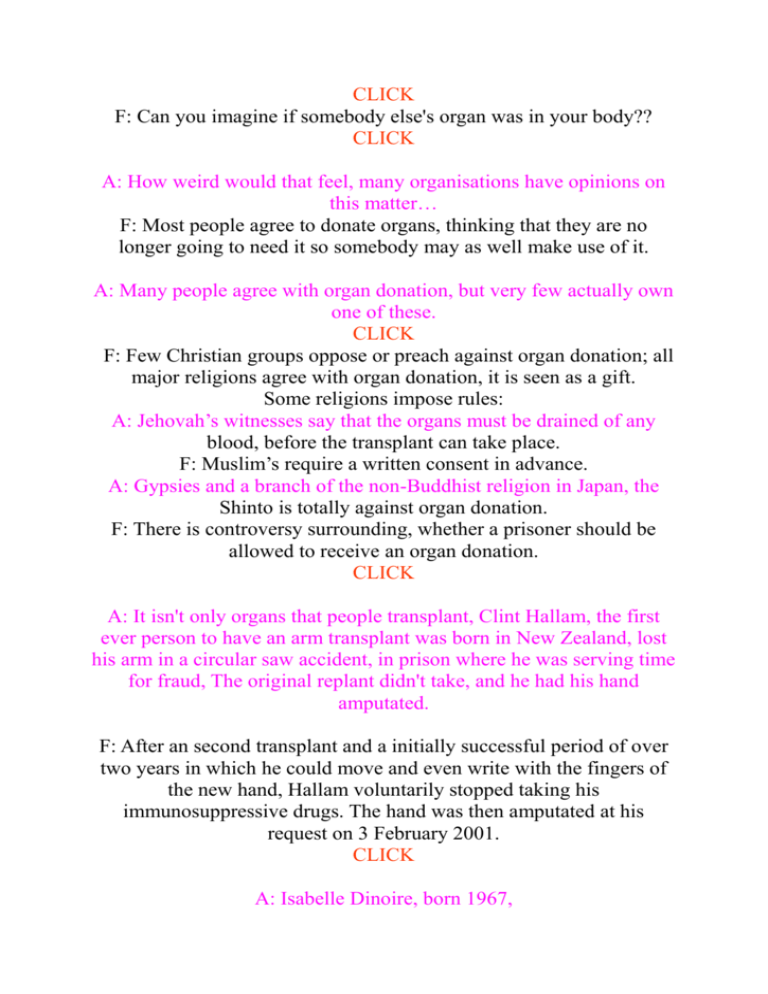
CLICK F: Can you imagine if somebody else's organ was in your body?? CLICK A: How weird would that feel, many organisations have opinions on this matter… F: Most people agree to donate organs, thinking that they are no longer going to need it so somebody may as well make use of it. A: Many people agree with organ donation, but very few actually own one of these. CLICK F: Few Christian groups oppose or preach against organ donation; all major religions agree with organ donation, it is seen as a gift. Some religions impose rules: A: Jehovah’s witnesses say that the organs must be drained of any blood, before the transplant can take place. F: Muslim’s require a written consent in advance. A: Gypsies and a branch of the non-Buddhist religion in Japan, the Shinto is totally against organ donation. F: There is controversy surrounding, whether a prisoner should be allowed to receive an organ donation. CLICK A: It isn't only organs that people transplant, Clint Hallam, the first ever person to have an arm transplant was born in New Zealand, lost his arm in a circular saw accident, in prison where he was serving time for fraud, The original replant didn't take, and he had his hand amputated. F: After an second transplant and a initially successful period of over two years in which he could move and even write with the fingers of the new hand, Hallam voluntarily stopped taking his immunosuppressive drugs. The hand was then amputated at his request on 3 February 2001. CLICK A: Isabelle Dinoire, born 1967, CLICK F: Was the first person to undergo a partial face transplant, after her Labrador dog mauled her in May 2005? CLICK Prior to the operation, she could barely eat or speak, but after the operation, she can do both. A triangle of face tissue CLICK Including the nose and mouth was taken from a brain-dead female donor and grafted onto the patient. "Scientists elsewhere have performed scalp and ear transplants. A: However, the claim is the first for a mouth and nose transplant. Experts say the mouth and nose are the most difficult parts of the face to transplant. CLICK Body parts are not only needed for skin grafting and reconstruction, but also medical training and science, developing medicines etc. CLICK While the number of people in England and Wales donating kidneys, livers and other organs has increased since 2000, the number of people leaving their whole body for medical science has fallen. CLICK Between 2000 and 2005 the number of body donations fell from 670 to 600. This has meant that some schools no longer have sufficient for their teaching needs. CLICK By contrast, the number of English and Welsh medical schools has increased, and new postgraduate anatomy departments have opened to improve the anatomy training of surgeons. With the formation of new medical schools, the number of medical student’s at most established medical schools has also increased in parallel, to a total of over 6,000 a year. CLICK This combination of reduced donations and increased numbers of students has resulted in a serious shortage of bodies for the education and training of medical and dental students, and for medical research. CLICK An increase in people who are wish to donate their body is necessary to make good the current shortage of bodies for education, but also to facilitate training in a number of surgical techniques that are permitted, for the first time, by the Human Tissue Act 2004. CLICK F: So how can you help? You can register as soon as you are 16; help make a difference to someone’s life…. CLICK A: So make sure you carry one of these... Thank you x
